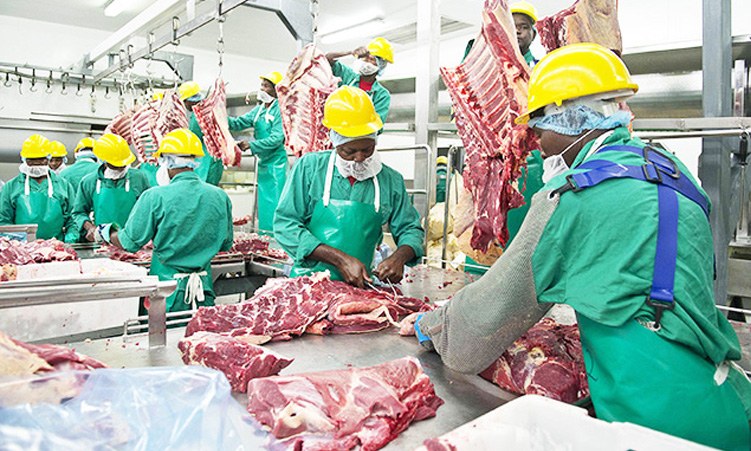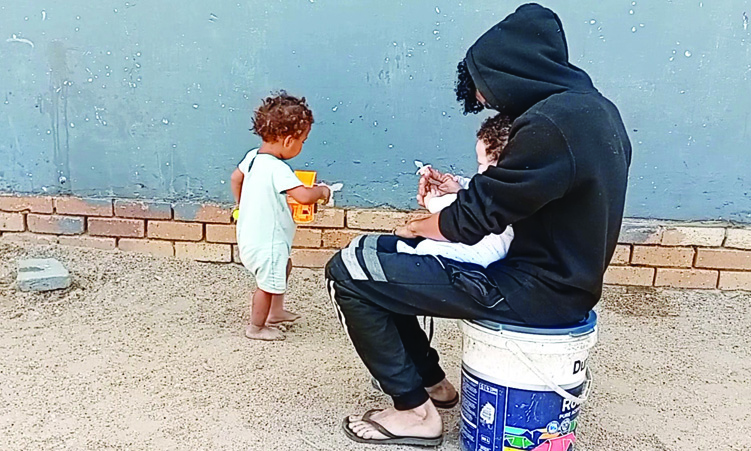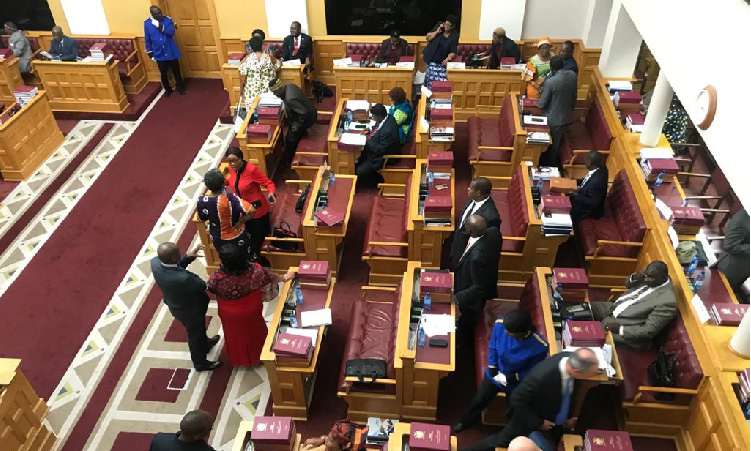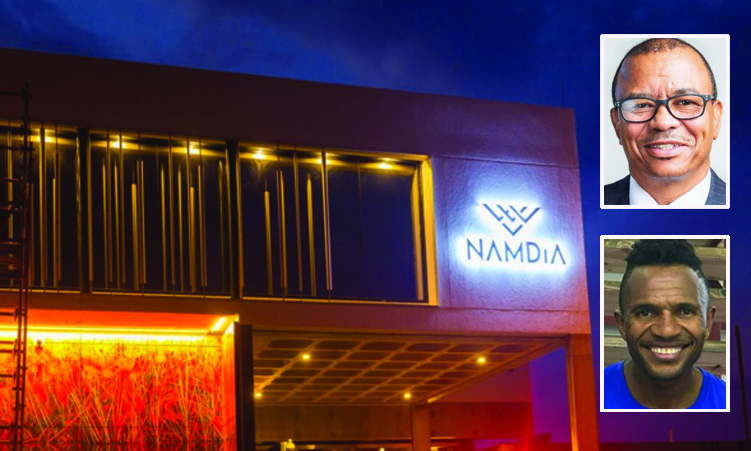SWAPO could face a backlash from its supporters in the national elections in November after imposing unpopular councillors on residents of a number of towns across the country.
Several members, supporters and sympathisers of the ruling party have indicated in interviews that the interference of the party’s head office in local government affairs has left them unhappy and doubtful about whether to turn up in big numbers at the November polls. Many spoke on condition of anonymity, others said they were scared to use phones because of possible taps by intelligence agencies.The strongest opposition has so far come from the membership at Ongwediva, where Swapo’s top leadership gave instructions that four elected councillors be replaced with former councillors who were outvoted at party-internal selections ahead of the Local Authority elections in the middle of May.People at Ongwediva took to the streets to demand an explanation from ruling party headquarters about why the people they elected were turfed out by the Politburo.Those ejected from the Swapo list of elected councillors have also gone to court to stop Swapo from installing the former councillors.At the other end of the country, in the South, Swapo members at Luederitz also held demonstrations against changes made to their list of candidates.But these two towns are by no means alone.Swapo head office has given similar directives to its members in at least six other towns and villages before or after the elections, ignoring popular opinion.At Otjiwarongo, Tsumeb and Walvis Bay, people elected at the party’s meetings as candidates were downgraded or removed from the list because of so called “tribal balance”.At other place, such as Gibeon, party members talk of “blatant favouritism”, which they believe cost Swapo precious votes and control of the village.The arbitrary removal of elected new councillors at Ongwediva was apparently done for the sake of “continuity”.Simon Nande Heita, a Swapo member at Ongwediva, said last week that he was worried about the move as it would discourage his fellow comrades from going to the polls in November.”This will cause a lack of trust in the party.There are elections coming up, who will convince the people to go and vote again? The Ongwediva residents might just abstain,” said Heita.He said previous councillors appeared to have used the head office to impose themselves after failing to impress the voters.Another Swapo member at Ongwediva, Lazarus Namwandi, said people there feel “cheated” and described it as “a betrayal of the voters” after the candidates were paraded by President Sam Nujoma a week before the elections.Many Swapo members “are not going to vote” if they did not get a fair explanation, he said.But both Heita and Namwandi agreed that abstention would be the more obvious decision rather than switching votes.”Real Swapos will not change or switch to another party,” said Heita, who called on the previous councillors to accept democracy and follow Nujoma’s example by giving up office.A political analyst at the University of Namibia (Unam), Fanuel Kaapama, said discussing whether future elections would be affected by what was taking place in towns would be “speculation”.Kaapama said people’s decisions would be influenced by many issues, including that voters might not see a link between municipal and national elections.A Tsumeb Swapo member said party supporters there were unhappy about the “tampering” with the candidates’ list.”It’s like a wave of protest, people threatening that they are not going to vote at the end of the year.People feel they have been taken for a ride,” said the Tsumeb resident.”They will rather abstain.One can still feel the loyalty running in their veins,” said the ruling party member in Tsumeb.David Tshoombe at Luederitz, who was on top of the Swapo candidates’ list but was removed before the elections, said ruling party supporters there voted largely because of appeals by senior party leaders.A bearded man watching the Ongwediva High Court case complained that Swapo had seemed to “become” undemocratic and that he did not like it.More people are openly speaking out against what they view as a closed way of dealing with internal party matters.Despite the transparent voting process that made Lands Minister Hifikepunye Pohamba Swapo’s crown prince, disgruntled young members of the party and sympathisers of the other two candidates, particularly former Foreign Affairs Minister Hidipo Hamutenya, have vowed to stay away from the polls.Meanwhile, Heita said some people claimed that the Ongwediva protesters were unhappy with the outcome of the Swapo Congress because they had supported Hamutenya.”This has nothing to do with the three candidates… Ongwediva residents believe in democracy,” he said.Many spoke on condition of anonymity, others said they were scared to use phones because of possible taps by intelligence agencies.The strongest opposition has so far come from the membership at Ongwediva, where Swapo’s top leadership gave instructions that four elected councillors be replaced with former councillors who were outvoted at party-internal selections ahead of the Local Authority elections in the middle of May.People at Ongwediva took to the streets to demand an explanation from ruling party headquarters about why the people they elected were turfed out by the Politburo.Those ejected from the Swapo list of elected councillors have also gone to court to stop Swapo from installing the former councillors.At the other end of the country, in the South, Swapo members at Luederitz also held demonstrations against changes made to their list of candidates.But these two towns are by no means alone.Swapo head office has given similar directives to its members in at least six other towns and villages before or after the elections, ignoring popular opinion.At Otjiwarongo, Tsumeb and Walvis Bay, people elected at the party’s meetings as candidates were downgraded or removed from the list because of so called “tribal balance”.At other place, such as Gibeon, party members talk of “blatant favouritism”, which they believe cost Swapo precious votes and control of the village.The arbitrary removal of elected new councillors at Ongwediva was apparently done for the sake of “continuity”.Simon Nande Heita, a Swapo member at Ongwediva, said last week that he was worried about the move as it would discourage his fellow comrades from going to the polls in November.”This will cause a lack of trust in the party.There are elections coming up, who will convince the people to go and vote again? The Ongwediva residents might just abstain,” said Heita.He said previous councillors appeared to have used the head office to impose themselves after failing to impress the voters.Another Swapo member at Ongwediva, Lazarus Namwandi, said people there feel “cheated” and described it as “a betrayal of the voters” after the candidates were paraded by President Sam Nujoma a week before the elections.Many Swapo members “are not going to vote” if they did not get a fair explanation, he said.But both Heita and Namwandi agreed that abstention would be the more obvious decision rather than switching votes.”Real Swapos will not change or switch to another party,” said Heita, who called on the previous councillors to accept democracy and follow Nujoma’s example by giving up office.A political analyst at the University of Namibia (Unam), Fanuel Kaapama, said discussing whether future elections would be affected by what was taking place in towns would be “speculation”.Kaapama said people’s decisions would be influenced by many issues, including that voters might not see a link between municipal and national elections.A Tsumeb Swapo member said party supporters there were unhappy about the “tampering” with the candidates’ list.”It’s like a wave of protest, people threatening that they are not going to vote at the end of the year.People feel they have been taken for a ride,” said the Tsumeb resident.”They will rather abstain.One can still feel the loyalty running in their veins,” said the ruling party member in Tsumeb.David Tshoombe at Luederitz, who was on top of the Swapo candidates’ list but was removed before the elections, said ruling party supporters there voted largely because of appeals by senior party leaders.A bearded man watching the Ongwediva High Court case complained that Swapo had seemed to “become” undemocratic and that he did not like it.More people are openly speaking out against what they view as a closed way of dealing with internal party matters.Despite the transparent voting process that made Lands Minister Hifikepunye Pohamba Swapo’s crown prince, disgruntled young members of the party and sympathisers of the other two candidates, particularly former Foreign Affairs Minister Hidipo Hamutenya, have vowed to stay away from the polls.Meanwhile, Heita said some people claimed that the Ongwediva protesters were unhappy with the outcome of the Swapo Congress because they had supported Hamutenya.”This has nothing to do with the three candidates… Ongwediva residents believe in democracy,” he said.
Stay informed with The Namibian – your source for credible journalism. Get in-depth reporting and opinions for
only N$85 a month. Invest in journalism, invest in democracy –
Subscribe Now!









